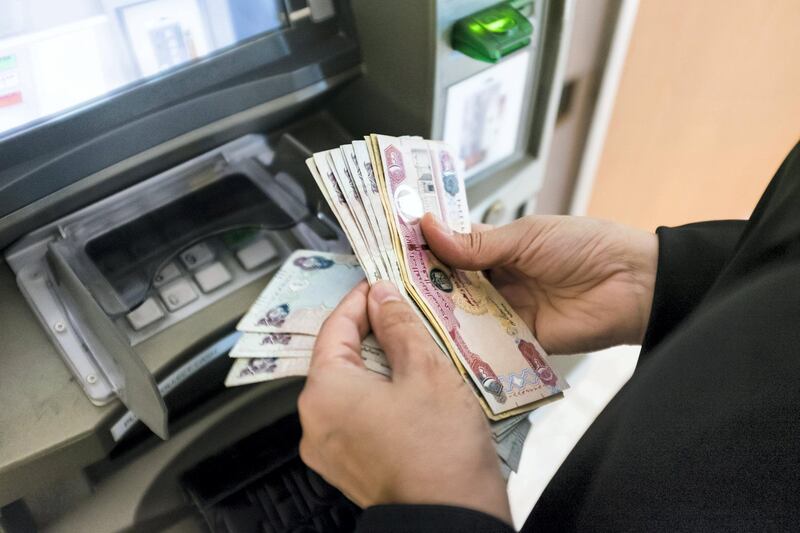Banks have started charging VAT on various services offered, following a June circular from the Central Bank of UAE, which rescinded a previous notice to the contrary.
In December, the Central Bank issued a notice informing banks that they should absorb VAT charges until they received further instructions.
In June last month, an amendment was issued, detailing 43 new caps on fees and commission charged on consumer-related banking services. The circular specified that "all fees set out in this amendment are exclusive of VAT charges."
Tina Hsieh, senior manager for indirect tax at global consultancy PricewaterhouseCoopers, said banks will now revise their fees and commissions, publishing any revisions in their schedule of charges.
“To that end, retail customers, for example, will be paying VAT in addition to the fees or commissions charged by banks,” she added.
The December notice seemed to oppose the understanding of many banks at the time, according to PwC, “where the interpretation is that charging VAT on their (maximum) fees and commissions is not an increase in fee but rather is a levy of tax on behalf of the Federal Tax Authority”.
However, the Central Bank clarified the issue in the circular issued last month, giving banks the go-ahead to charge VAT on fees to individuals and companies.
“The new amendment which is effective as of July 1 includes both individuals and entities. Both will be charged a 5 per cent VAT on all fees and bank services with no exception,” said Abdul Aziz Al Ghurair, chairman of UAE Banks Federation in an interview with Al Bayan Economic.
Charging customers VAT is in line with the practices of banking systems in many developed countries internationally, he said.
The new decree, he added, allowed fee caps on 43 out of 140 bank services to a tax fee increase of a maximum of 5 per cent.
“We believe that the Central Bank’s resolution is clear, will have a positive effect on banks performance and will not adversely affect credit limit in the sector,” said Mr Al Ghurair.
_______
Read more:
[ UAE Central Bank caps retail banking fees in boost to expat-friendly economy ]
[ Revealed: what the new UAE bank fee changes actually are ]
[ Cabinet approves VAT cash back for tourists visiting UAE ]
_______
Many banks now declare on their websites that VAT will be charged where applicable.
Some, such as Standard Chartered, include a section explaining the recent circulars to customers, setting out how they plan to implement the charge.
“Standard Chartered Bank will be allowed to charge VAT where applicable, by increasing the existing fee structures for both individual and non-individual clients for an additional amount equal to the underlying payment multiplied by the appropriate rate of tax, effective from 19 June 2018 on a prospective basis in accordance with UAE VAT law,” reads a statement on Standard Chartered's website.
Mohamed Abdel Bary, regional chief finance for Africa & Middle East and chief finance officer for the UAE at Standard Chartered, said the bank is committed to complying with all legislation, rules and other regulatory requirements.
“We actively cooperate with our regulators and share international best practice in order to ensure such compliance,” he added.
A notice on the Citi website said the bank’s understanding is that “bank fees will not be exempt from VAT. All the bank account fees charged by Citi are exclusive of taxes".
A spokeswoman for the bank said: “Citi is in compliance with the Federal Tax Authority VAT regulation and with the CBUAE regulations regarding bank loans and other services offered to individual and non-individual customers.”
_______________
Read more:
VAT q&a: 'Can a UK business visitor reclaim VAT on UAE spending?'
"Do I have to pay tax on UAE income when I return to the UK this summer?"
VAT q&a: 'Do I have to pay VAT twice on an item posted to the UAE?'
VAT q&a: 'What is the best way to make a VAT payment to the Federal Tax Authority?'
_______________







